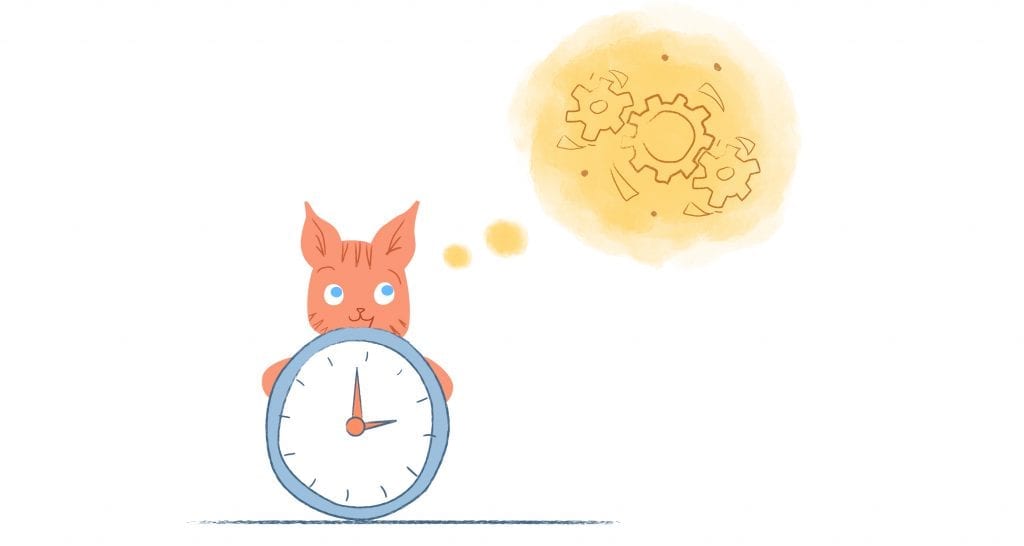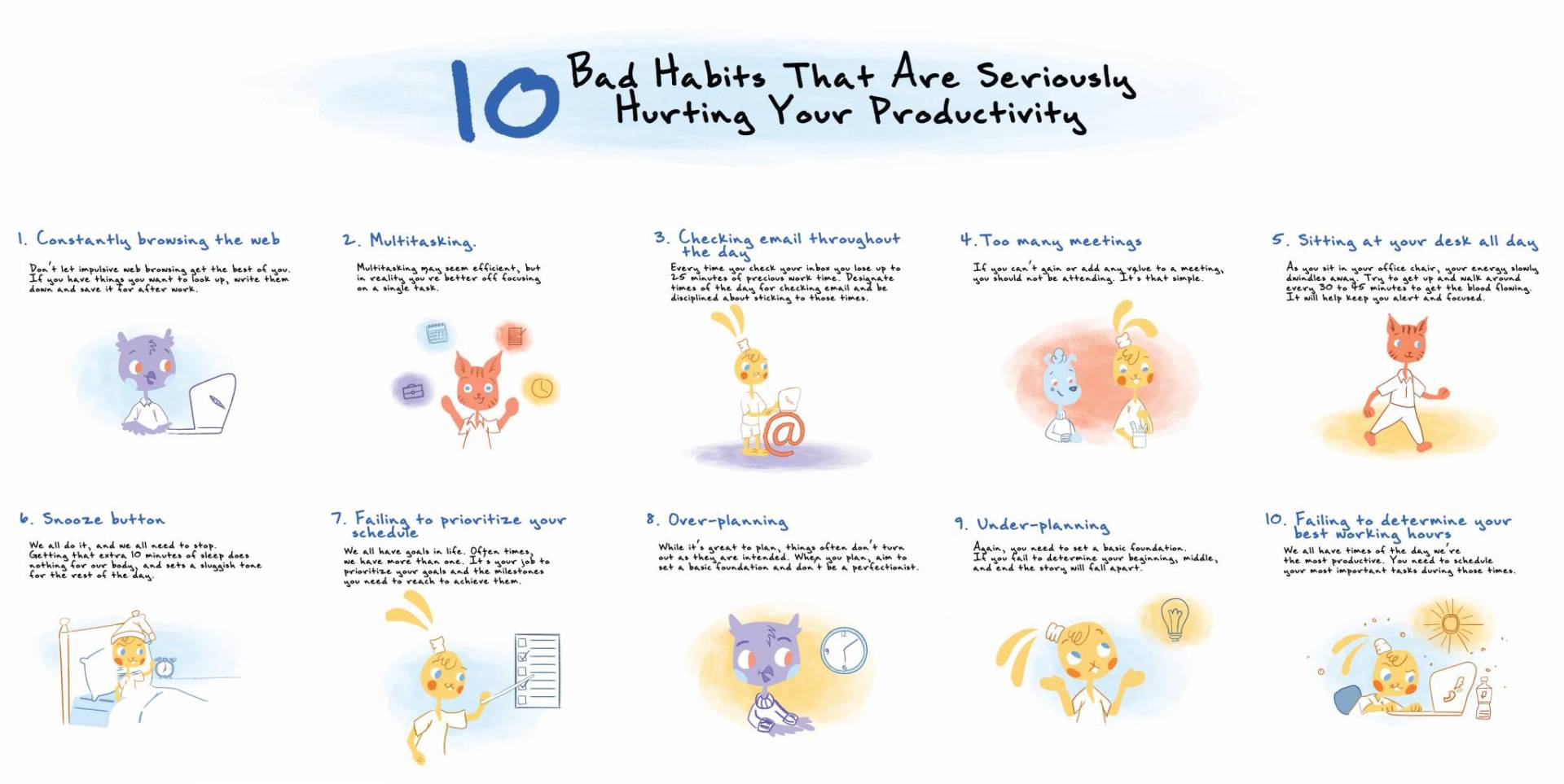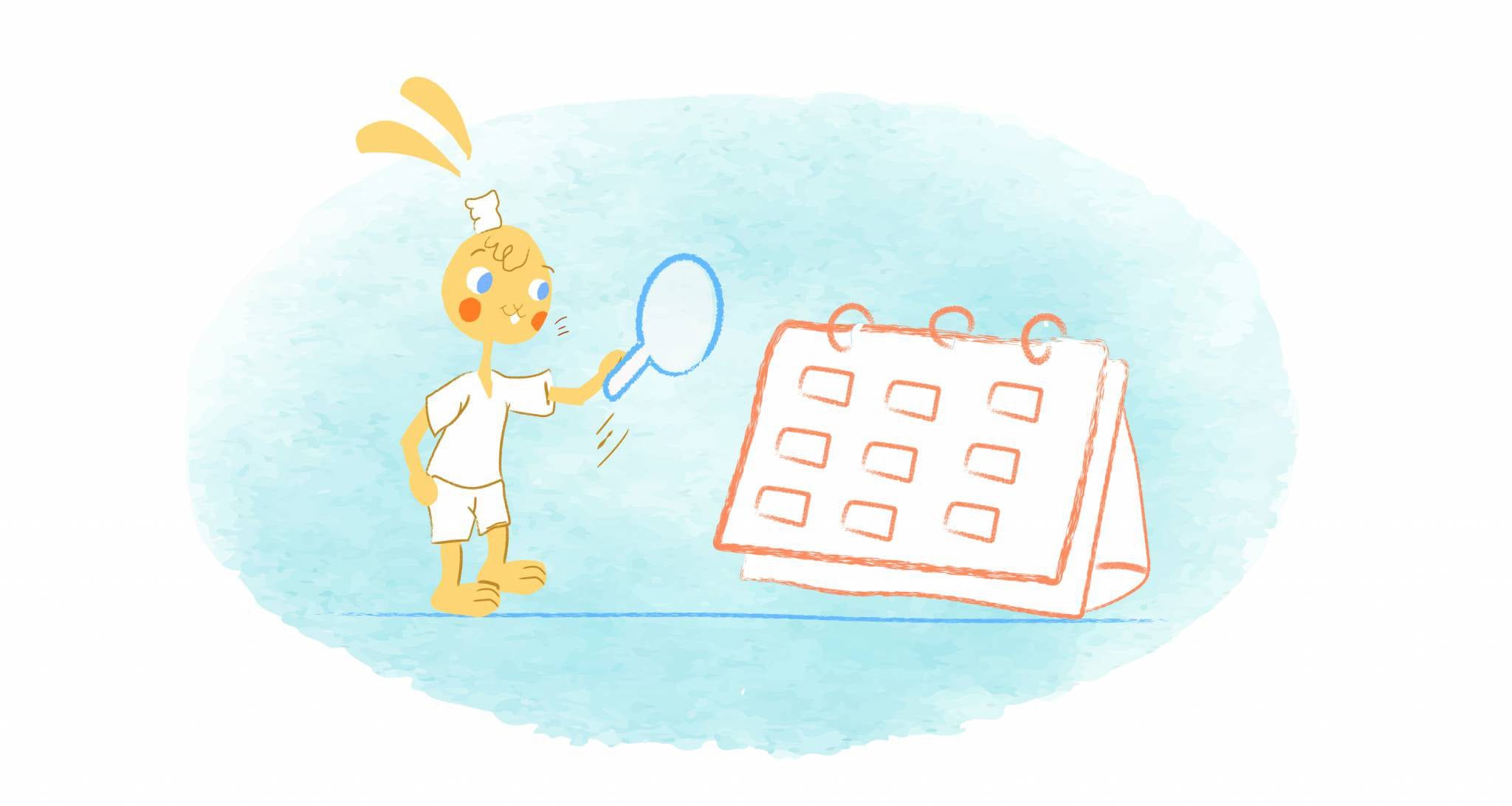

When it comes to productivity your habits have a profound effect. Good habits like developing routines and staying organized are guaranteed ways to get more out of each and every day. On the contrary, habits like multitasking are proven to be ineffective when trying to get more done. If you want to truly get more out of your workday you need to make an effort to kick those time-wasting habits.
Here are 10 bad habits that are seriously hurting your productivity.
1. Constantly browsing the web
The internet is the best (and worst) thing for your productivity. Yes it’s a necessity in getting the vast majority of your work done. However, it also represents one of the biggest distractions you can have in the workplace. Whether you’re deep in Reddit threads or watching how to’s on Youtube, the distractions are everywhere.
Don’t let impulsive web browsing get the best of you. If you have things you want to research or simply want to browse, write your ideas down and look it up later.
2. Multitasking
Multitasking presents the misconception that you’re getting two things done at the same time. In reality, you’re actually performing both tasks inefficiently. Our minds are not meant to multitask. So next time you’re eating while working, remember that you’re better off finishing your sandwich then getting back to work.
3. Checking email throughout the day
It’s estimated that every time you check your email you lose up to 25 minutes of precious work time. Checking emails is important, but if you’re doing it throughout the entire day you’ll end up wasting a bunch of time. The best approach is to schedule set times of the day that you dedicate to checking email.
Set aside 20 minutes in the morning, 20 minutes after lunch, and 20 minutes before you leave work for email. This way you ensure you’ll only spend an hour (or less) on emails a day. Sure there are emergency situations, but you never want to get in the habit of constantly checking your inbox every time you get an email.
4. Too many meetings
Is there such thing as too many meetings? Of course there is. In fact, it’s estimated that a whopping $37 billion per year is spent on unproductive meetings. Don’t fall into that same trap. Remember, if you can’t gain or add value to the meeting you’re better off not attending.
If you’re the one organizing the meeting, take the time to justify (to yourself) the purpose for the meeting. Write it out, think it through, and determine whether not it’s an efficient use of everyone’s time.
5. Sitting at your desk all day
Many of us are used to the sedentary office lifestyle. Those who are a bit more “hip” decide to go with the standing desk option. While standing upright definitely helps, it still doesn’t have the same effect as getting up and moving around.
Instead of sitting (or standing) at your desk all day, try to move around every 30 to 45 minutes and move around. This will get your blood flowing and keep you alert and focused throughout the day.
Do you have a one-on-one meeting or conference call? Take the meeting on a walk outside to get some fresh air instead of using a conference room. Your body and mind will thank you.
6. Snooze button
We’re all guilty of this one. Those who say they don’t do it are either lying or have truly mastered the art of waking up in the morning. If you can help it, always avoid hitting the snooze button in the morning. That extra 10 or 20 minutes of sleep does nothing for your body and sets a sluggish tone for the rest of your day.
This is a brutal tactic, but try putting your alarm on the other side of the room. When it rings you’ll need to cross that arctic 10 ft walkway to turn it off. By that time you’ll hopefully be wide awake!
7. Failing to prioritize your schedule
We all have goals and aspirations in life. In order to achieve those goals we need to set milestones for ourselves. In order to hit those milestones we need to prioritize our very busy schedules each and every day.
You have a million things to get done in a day. It’s up to you to decide which goals take priority and what are the milestones you need to reach to achieve them. Use your calendar to prioritize daily tasks. Every night look back on your previous day and organize the next one. Overtime you’ll get a really good sense of what you can accomplish in a day, and how you can prioritize the tasks that are most important!
8. Overplanning
It’s great to make plans. The more organized and prepared you are for something the better you’ll perform. That all said, there is a point when you can overplan.
Have you ever heard of Murphy’s Law? Well it basically means if there’s something that can go wrong…it will. That’s not to say you should go into every situation without a plan, but it means things often don’t turn out the way they’re intended. When you are planning you just need to set a basic foundation. Don’t be a perfectionist, it’s typically not worth the extra time or effort.
9. Underplanning
As mentioned above, you need to set that basic foundation. Think of it like a story. You need to determine your beginning, middle, and end. If you don’t the story will fall apart.
10. Failing to determine your best working hours
We all have times of the day that we’re the most productive. If you want to spend your time efficiently you need to schedule your most important tasks during those times.
Let’s say you work in sales for example. You’re not really a morning person and you typically get a second wind after lunch time. When scheduling your day you should look to spend your morning time doing tasks like prospecting and email outreach, and spend your afternoon on sales calls. Those calls are what bring home the bacon, so make sure you’re taking them when you’re at your best!
At the end of the day, you’re not going to make any changes overnight. Nor will you be able to kick all of these at once. That said, it’s definitely possible to make daily progress to kick these bad habits and eventually come out a more productive and efficient person!













Renzo Costarella
Renzo Costarella is an entrepreneur, avid learner, and startup enthusiast currently living in Silicon Valley. He consults for several startups in the Bay Area and is pursuing a few ideas of his own.